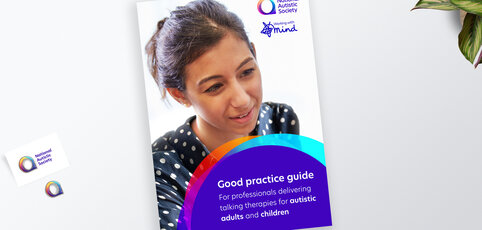Addiction - a guide for professionals
What is addiction?
The National Health Service describes addiction as “not having control over doing, taking or using something to the point where it could be harmful to you.”
Addiction regularly refers to the overuse of gambling, drugs, alcohol and nicotine but it is important to recognise that it can also include a reliance on work, the internet or technology, and shopping.
People often develop an addiction if they are struggling to cope with everyday life or have a particular difficulty in their lives. For some people, an addiction helps them to live with these challenges but that addiction is likely to cause further problems. For example, it could cause or increase problems with money, with relationships or with executive functions, ie concentration, organising or planning even routine daily tasks, or understanding your own feelings and learning to manage them.
You can find more general information about addiction on the NHS website as well as the Action Addiction website.
Addiction and autistic people
There is very little information regarding addiction and autism, and very few personal accounts.
It is difficult to accurately identify the prevalence rate of addiction for autistic people. There are many different types of addiction and the literature focuses mainly on drugs and alcohol.
Some research states that substance abuse is more common in autistic people than in non-autistic people whereas others state that it is less common in autistic people.
It is also possible that people with a dual diagnosis of autism and ADHD are more likely to develop addictions. They’re also more likely to experience an addiction if a close relative or a friend has an addiction.
Autistic people can become reliant on drugs, alcohol and technology because they use these things to help them to cope.
There may be environmental factors that could affect autistic people. Research evidence, professional practice and personal accounts have suggested autistic people who found socialising difficult used substances to increase confidence. Substances used as self-medication of the psychological distress often led to depression, anxiety and sleep difficulties.
Autistic people may use technology, such as computers, as a more comfortable means of communicating and interacting with others. Research suggests autistic people may be more prone to becoming addicted to these.
Alcohol and drugs may be used as coping mechanisms. Autistic people may use substances such as alcohol to:
- reduce anxieties, in particular social anxieties
- manage sensory differences.
There are very few personal accounts of addiction from autistic people. From those that exist, the most common reason for alcohol and/or drug use was to cope with, mask or manage the following:
- social situations
- social anxiety
- sensory overload.
How can I help?
If you are working with an autistic person with an addiction, you may find that addressing their underlying anxieties and sensory differences can alleviate some of the addiction problems. To ease difficulties that may be been part of the addiction, treatment and care aimed at improving skills in areas such as time management, organisation, problem solving, motivation and the regulation of emotions can be helpful.
Counselling or therapy
There are many types of counselling and therapy, including CBT that has been shown to be effective for some autistic people. All talking therapies should be adapted to be effective for autistic people.
Conventional addiction therapy may not be suitable for an autistic person.
Often the treatment of different addictions is group-based and this may be unsuitable. If you are helping an autistic person access support or treatment, ask local service providers and therapists if they can adapt their support to meet the needs of the autistic person.
If you are providing addiction support for an autistic person, adapt your therapy to be autism friendly.
You could consider:
- staff training on autism, to help them support and identify autistic people who may or may not yet have a diagnosis and understand the links between autism and conditions such as anxiety
- focus on supporting individuals, rather than just taking a group approach
- be consistent in times and structure of meetings so that autistic people using the service know what to expect
- make discussions about emotions tangible, use lived experiences
- use visual learning materials as well as verbal.
Consider screening for dual diagnoses
Clinicians should screen autistic people for addiction, and screen people with addictions to see if they are autistic. They should consider the possible co-occurrence of addictions and autism when assessing people with either condition.
Useful links and resources
Online resources









